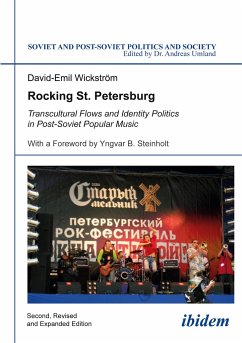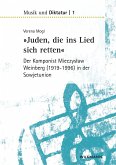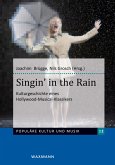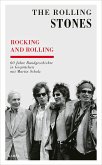In this remarkable book, David-Emil Wickström traces the transcultural flow of popular music production emanating from St. Petersburg, a central hub of the Russian music scene. With a specific focus on the post-Soviet emigrant community in Germany and their event `Russendisko`, Wickström himself a trumpet player in two local bands explores St. Petersburg`s vibrant music scene, which provides an electrifying platform for musical exchange.
The findings shed a new light on Soviet and post-Soviet popular music history and even Russia`s relationship to Ukraine. Wickström demonstrates the filtering processes embedded in transcultural flows and how music is attributed new meanings within new contexts. This innovative book not only promotes a deeper understanding of the role of popular music in society, it also enables a better comprehension of cultural processes in the second decade after the fall of the Soviet Union.
The findings shed a new light on Soviet and post-Soviet popular music history and even Russia`s relationship to Ukraine. Wickström demonstrates the filtering processes embedded in transcultural flows and how music is attributed new meanings within new contexts. This innovative book not only promotes a deeper understanding of the role of popular music in society, it also enables a better comprehension of cultural processes in the second decade after the fall of the Soviet Union.








